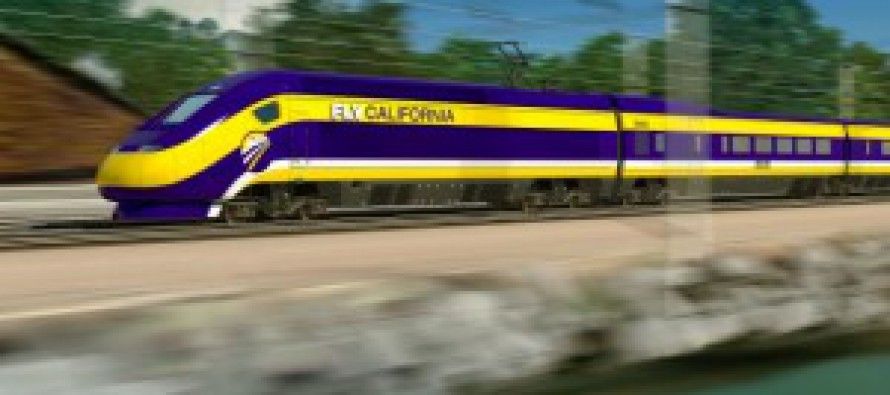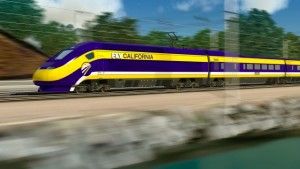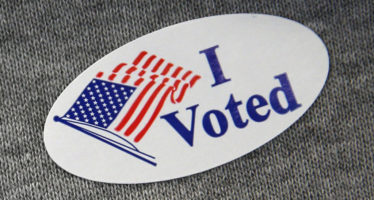High-speed rail lawsuit advances

March 17 marks the next critical date in legal action surrounding California’s high-speed rail project. By that date, the office of California’s Attorney General Kamala Harris, which represents the High-Speed Rail Authority, is expected to file a new appeal.
At issue before the Court of Appeal will be a March 4 ruling by Superior Court Judge Michael Kenny that allowed the continuance of the lawsuit by Kings County and two residents affected by the project, John Tos and Aaron Fukuda. Both residents own property that would be taken to build the project.
Kenny’s action was a blow to the California High-Speed Rail Authority, which had asked the court to dismiss the case.
Within 48 hours of Kenny’s new ruling, Harris’ office notified Stuart Flashman, who is representing Kings County and the residents, that the CHSRA was going to ask the Court of Appeal for a writ to again stop the case.
And CHSRA Spokeswoman Lisa Marie Alley told CalWatchdog.com, “We disagree with the March 4 Sacramento Superior Court’s ruling and are preparing to seek a review by the Court of Appeal.”
The CHSRA is asking for an “ex parte” decision by the Court of Appeal. Flashman explained to CalWatchdog.com, “Ex parte means a decision would be made without the usual about 20 days’ advance notice to the opposing parties of the intent to seek court action. Here, they’re wanting expedited handling of a motion asking for a stay of the trial court proceedings.”
Flashman said he doesn’t understand the need for urgency. He said it’s like someone yelling, “My house is on fire! My house is on fire! You have to do something!” Yet when firefighters arrive, they find the fire is only on a barbeque grill.
“There’s no fire here,” Flashman said. “Nothing has been decided. What is the damage? What is the harm? There is no decision. It’s not as if there is an injunction in effect.”
Kenny’s March 4 ruling only gave the CHSRA the right to have its case heard in court, not halt the project.
Reasons
Flashman expects the next court filing by the CHSRA will show why it thinks the ruling to move forward with a trial is such an urgent matter. He believes that, if the Court of Appeal decides the case based on the law, the court will summarily deny this latest request for extraordinary writ review.
This next hearing will review specific promises made in Proposition 1A, which authorized the high-speed rail project when voters approved it in 2008. Kings County and the two residents insist that parts of the project are not in compliance with those promises, such as mandated high-speed travel times between Los Angeles and San Francisco and the likelihood that an operational subsidy will be required, something strictly forbidden in Prop. 1A.
Flashman explained, “Our position is simply that if the Authority wants to use the bond funds, it has to build what it promised the voters. Our complaint says that the Authority’s project doesn’t meet requirements for the high-speed rail system that were set when California voters approved Proposition 1A. Judge Kenny’s ruling means we get our day in court to prove our case. If we’re successful, it will mean the Authority can’t use the bond funds to build its noncompliant project.”
Next steps
The appeals court ruling is expected this spring at the earliest. It will decide whether to permanently overturn Kenny’s ruling.
Curiously, Harris’ brief before the court in this matter included a Washington Post article by editorial writer Charles Lane. Lane asked, “Who is more powerful, the president of the United States or Michael P. Kenny of Sacramento?”
That seemed to favor advancing high-speed rail through executive clout. But Lane continued:
“As it happens, Kenny’s ruling on the California rail plan was almost certainly correct; the Brown and Obama administrations have never plausibly explained where they would get the $68 billion needed to build the whole California system. Even if completed, high-speed rail would not enhance productivity; rather, it would consume subsidies, as it does in other countries. With teleconferencing a reality and driverless cars on the way, bullet trains don’t seem so cutting-edge anymore, anyway. …
“In 2009, Obama lauded high-speed rail in Europe and Asia, and declared: ‘There’s no reason why we can’t do this. This is America.’
“Actually, countries that have high-speed rail — China, Japan, France and Taiwan, for example — also tend to have much more centralized government than the United States.
“In other words, one reason we don’t have national high-speed rail, and probably never will, is that this is America.”
Ironically, Lane’s article, although submitted by Harris’ office, well could provide the Court of Appeal a reason to side against the CHSRA’s case, not for it.
Related Articles
Bill to save beach bonfires passes Assembly
For many state residents, roasting marshmallows over a beach fire ring is as Californian as surfing and the Beach Boys.
California bill would let 17-year-olds vote in all elections
California doesn’t have a particularly high opinion of the maturity of 18-year-olds, who can join the military but who can’t
Bullet-train propaganda: China-style vs. California-style
Oct. 22, 2012 By Chris Reed Last week’s New Yorker features a well-reported but conflicted article that tries to depict





